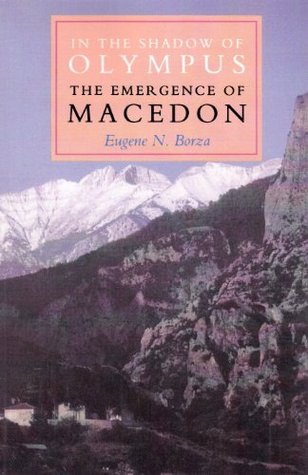„… Thus, long before there was a sufficient ancient evidence to argue about the ethnic identity – as revealed by language – of the ancient Macedonians, there emerged a “Greek” position claiming that the Macedonian language was Greek, and that thus the inhabitants were Greek.
…
For example, recent work describes the funerary stelae found in the tumulus covering the royal tombs at Vergina. These stelae date from the fourth and early third centuries, and the preponderance of names are Greek… The excavator of Vergina, Manolis Andronikos, in a useful summary of the epigraphic evidence, writes: “In the most unambivalent way this evidence confirms the opinion of those historians who maintain that the Macedonians were a Greek tribe, like all the others who lived on Greek territory, and shows that the theory that they were of Illyrian or Thracian descent and were hellenized by Philip and Alexander rests on no objective criteria.” Manolis Andronikos Vergina:The Royal Tombs, 83-85.
…
This argument is true enough only as far as it goes. It neglects that the hellenization of the Macedonians might have occurred earlier then the age of Philip and Alexander, and can not therefore serve as a means of proving the Macedonians were a Greek tribe.
…
It is indicative of the strength of Badian’s case that his critics have succeeded only in nit-picking: e.g., Sakellariou, Macedonia, 534-35 nn. 52.53″ (Borza, In the Shadow of Olympus p.96.)
…
The fullest statement of the “Greek” position, and also the most detailed study of the Macedonian language, is by Kallaris, Les anciens Macidoniens, esp. 2: 488-531, in which alleged Greek elements in the Macedonian language are examined exhaustively. A more chauvinistic (and less persuasive) point of view can be found in Daskalakis, Hellenism, esp. pts. 2. and 3. The most blatant account is that of Martis (The Falsification of Macedonian History). This book, written by a former Minister for Northern Greece, is an polemical anti-Yugoslav tract so full of historical errors and distortions that the prize awarded it by the Academy of Athens serves only to reduce confidence in the scientific judgment of that venerable society of scholars. The most sensible and scholarly Greek position is that laid out by Sakellariou, in Macedonia, 44-63. Lest it seem, however, that the “Greek” position is held only by modem Greeks” – (Borza, In the Shadow of Olympus p.91) …“

